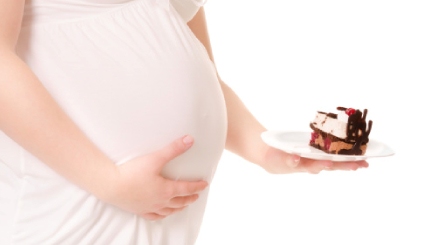Do The Fats You Eat During Pregnancy Make Your Kids Fat?
 How you look after your wellness during pregnancy is a big concern, as you’re not only looking after your wellbeing, but your baby’s too. According to a recent study, the type of fats you eat during pregnancy may have an affect on your child’s weight, and you even could cause your child to be overweight if you eat omega-6 polyunsaturated fatty acids. Your body cannot produce omega-6, but it is an essential fatty acid that you need from dietary sources, such as sunflower oil, because your body needs it to help with certain functions, such as brain development.
How you look after your wellness during pregnancy is a big concern, as you’re not only looking after your wellbeing, but your baby’s too. According to a recent study, the type of fats you eat during pregnancy may have an affect on your child’s weight, and you even could cause your child to be overweight if you eat omega-6 polyunsaturated fatty acids. Your body cannot produce omega-6, but it is an essential fatty acid that you need from dietary sources, such as sunflower oil, because your body needs it to help with certain functions, such as brain development.
For the study, researchers from the University of Southampton, who published their work in the peer-reviewed medical journal Endocrine Research, looked at the mother’s blood levels of long-chain polyunsaturated fatty acids (PUFA) when she was 34 weeks pregnant. They did this using data from a population-based mother-child cohort study, known as the Southampton Women’s Survey (SWS). This study included more than 12,500 non-pregnant women aged 20-34 living in the Southampton area, who had lifestyle and dietary assessments and body measurements taken at the time of recruitment to the study, and then again at 11 and 34 weeks of pregnancy, if they became pregnant whilst the study was being carried out.
The team then compared the mother’s blood levels to the child’s body fat at the ages of four and six, with particular regard to the effects of two types of PUFA; omega-6 fatty acid and omega-3 fatty acid, which is another essential acid you find in many fish. The results showed that when you, as the mother, consume omega-6 fatty acids, there is a link with your child’s weight, body fat mass and lean mass at both four and six years of age, though no association with omega-3 consumption was found.
However, the results did not prove a cause-and-effect relationship between maternal omega-6 consumption and child weight gain, and there are arguably more critical factors involved in your child’s weight, such as their diet and activity levels. Further, you should not assume that if your child has higher levels of fat at the ages of four and six, it means that he or she will automatically become obese. Therefore, the current dietary advice for women during pregnancy has not been changed.


Comments are closed.